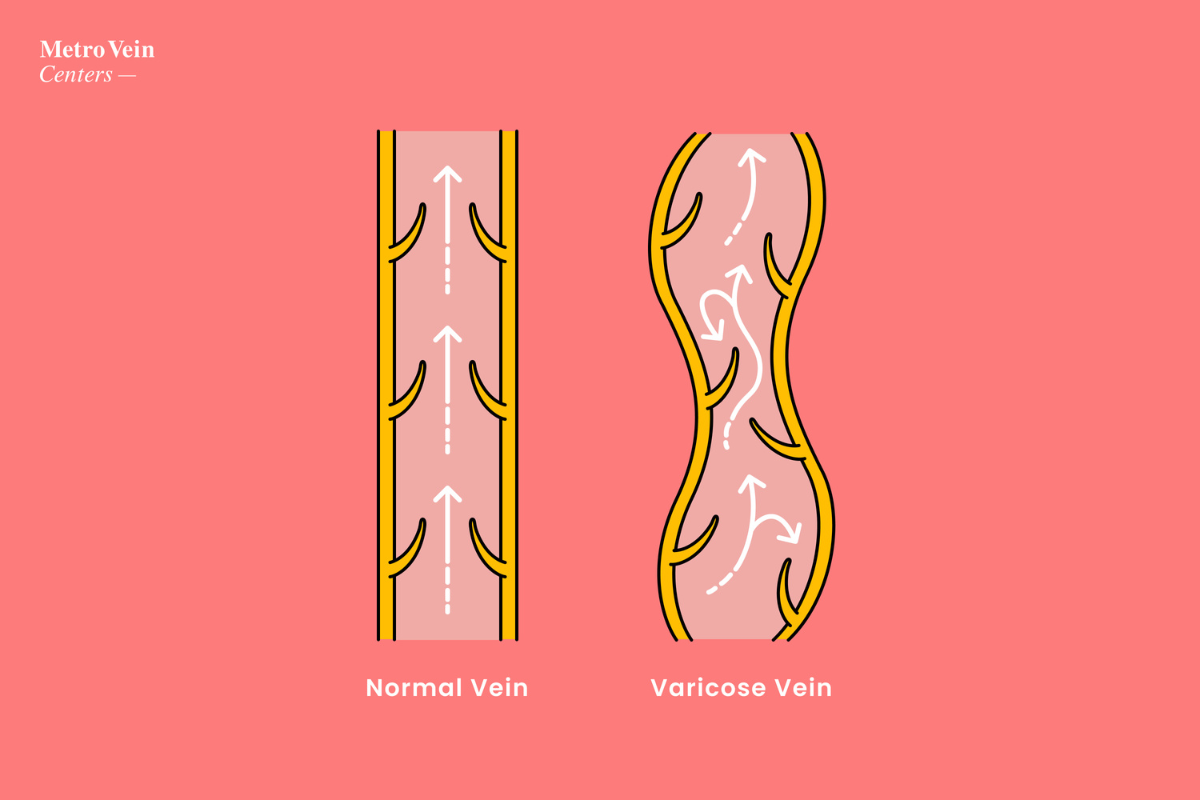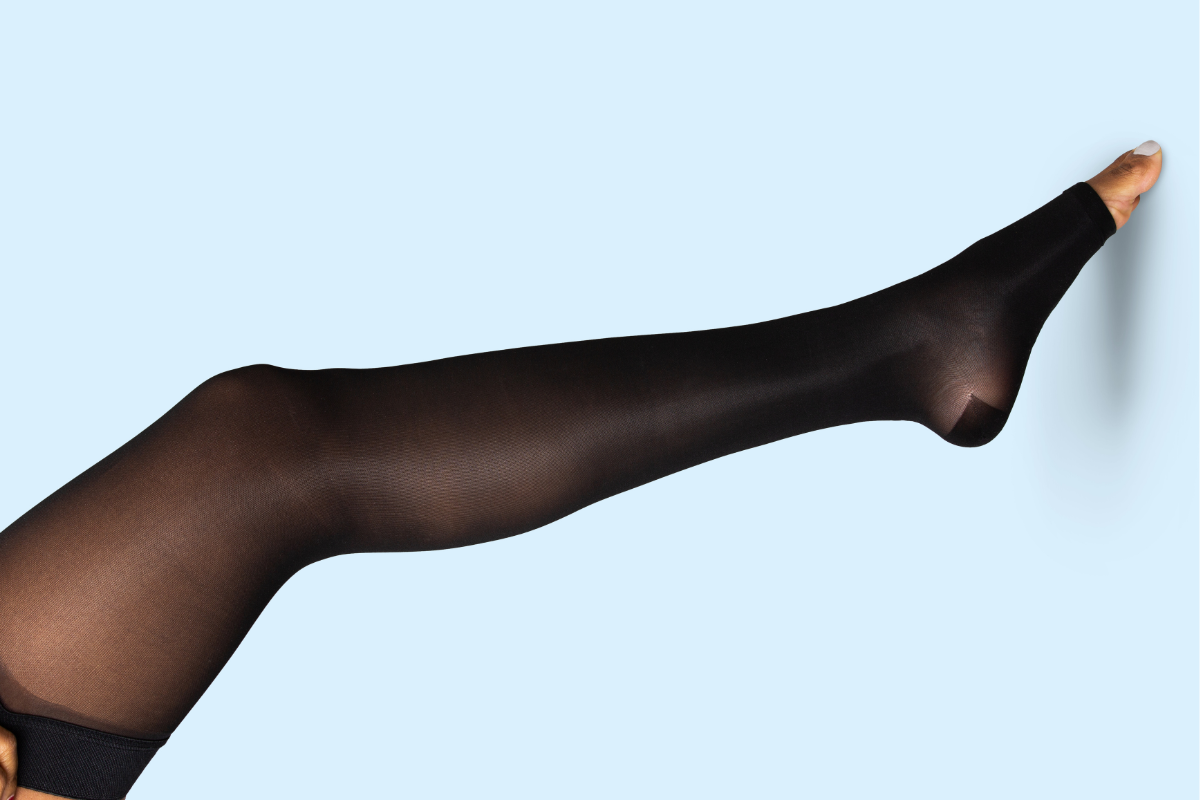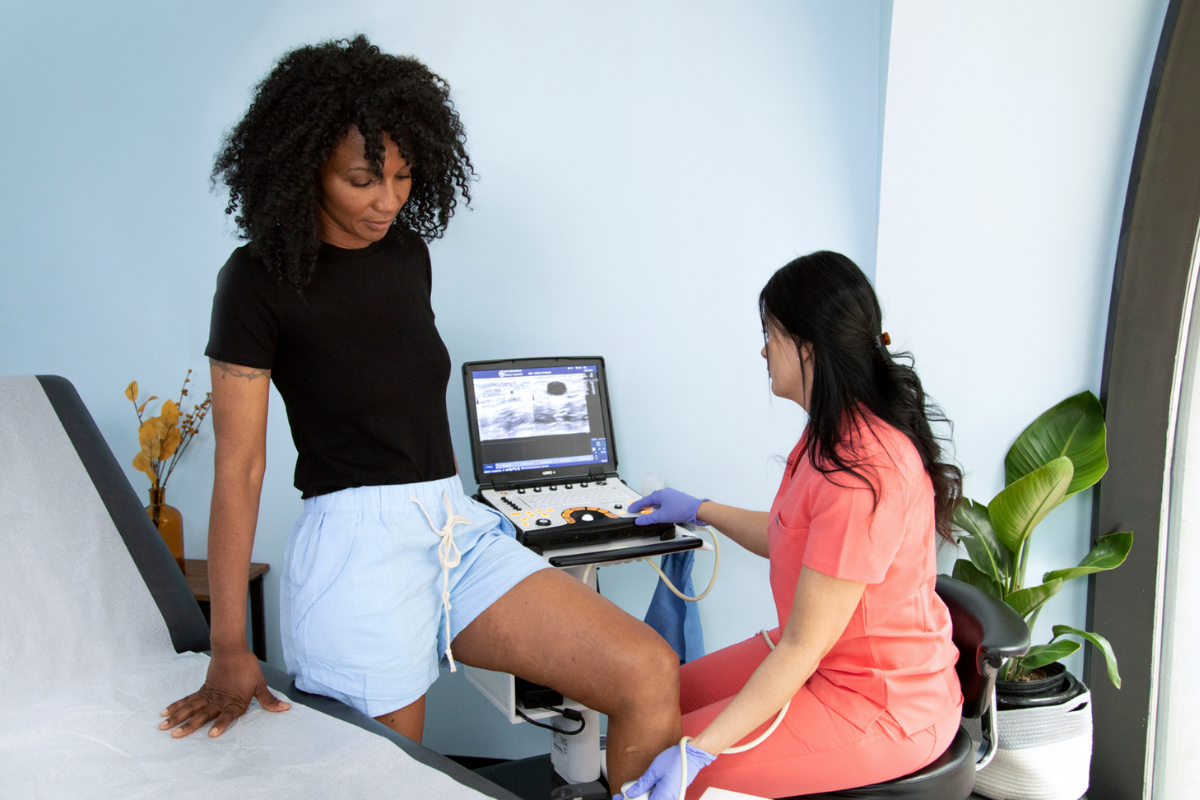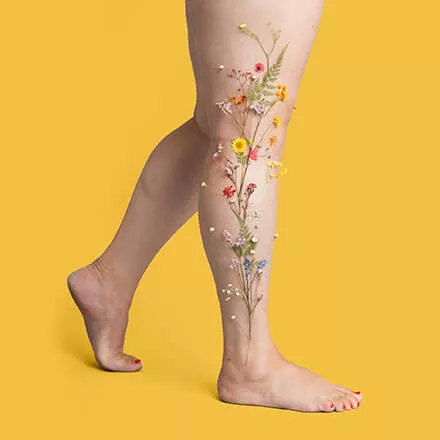If you've been researching gestational varicosities, you may have read our blog post Pregnancy and Varicose Veins, which contains important information about varicose veins during pregnancy. In this follow-up article, we'll dive deeper into causes and solutions, exploring tips for prevention and methods of management. Here's what to expect (and how to handle it) when you notice varicose veins during your pregnancy.

You Aren't Alone (In Fact, You Have More Company Than You Think!)
Varicose veins are a common condition that many experience during pregnancy, with 70-80% of people developing them over the course of their gestation. With factors like weight gain and genetics playing a major role in their appearance, varicose veins can develop in half of all pregnancies, and the likelihood that a person experiences these bulging, painful veins increases with each subsequent pregnancy. Symptoms often appear during the first trimester as the uterus begins to grow and pressure builds on the pelvic region, which in turn increases pressure on the lower extremities.
Swelling in the ankles and visible leg veins will appear as the most prominent signs of circulatory difficulties. Varicose veins may become apparent or reach their most inconveniencing during the final trimester, as the strain on the body is at its peak during the last three to four months of pregnancy. Enlarged veins tend to appear when the uterus increases in size, applying pressure on the inferior vena cava (your body's largest vein), which transfers blood from the feet and legs back to the heart. With pressure--be it from increased blood volume to compensate for the placenta, or from weight gain during pregnancy--the veins may begin to bulge. This may cause valves to malfunction, disrupting single-route blood flow to pass in both directions within the vein, and blood may pool, resulting in twisted, visible blue-purple veins.

Varicose veins are a common hereditary condition which can be aggravated by pregnancy, but they may also occur with spikes or changes in hormones, such as an increase in progesterone levels. Progesterone in high doses can weaken vein walls, which leads to poor blood flow and bulging in the veins. A person produces more estrogen during a pregnancy than they would throughout their entire life without becoming pregnant! That's a heavy hormonal tax on the body and the veins.
Being hereditary in nature, there isn't much that can be done in the way of guaranteed prevention, but education on the topic and preventative measures may help to decrease the severity of your symptoms during pregnancy.

The Good News
While it may seem like the odds are stacked against you, there likely isn't any reason for serious concern. These visible veins, while alarming to look at, cannot harm your fetus, so try not to worry! When it comes to your health, there's more good news on the way! Varicose veins that arise during pregnancy are very likely to go away on their own within three to four months following birth, as are spider veins that appear during pregnancy. You should make sure that your healthcare provider is aware of their presence, in case they're linked to any other conditions, but they are likely a result of your changing body. It's important to keep an eye on areas where you may have developed varicosities, such as the thighs, calves, vulva, or rectum (commonly known as hemorrhoids); if these bulging or discolored veins happen to stick around longer than four months, it would be wise to consult a vein doctor about correcting your malfunctioning veins.
Why Now?
Even people who are in "perfect health" may experience varicose veins during pregnancy! Varicose veins are linked to an influx of pregnancy changes, including the following:
- An increase in blood volume to fuel the placenta. This spike in volume enlarges the veins.
- Excess weight gain as the fetus grows, which puts strain and pressure on the lower extremities.
- Hormonal changes (specifically progesterone) which decrease the flow of blood to the heart, causing the smaller veins in the pelvis and legs to swell up.
These aspects, as you may have noticed, are largely out of your control. Therefore, the only way to deal with these issues is to manage them as they arise, or practice methods of improving circulation. We've got tips and tricks that may aid you in tolerating your varicosities or help you to lessen the severity entirely.

To Do and Not To Do
Luckily, there are quick fixes that can help you manage your varicosities, and all are relatively easy to incorporate into your busy schedule. By following these basic guidelines, your veins should experience less pressure and be less likely to bulge and become visible.
Avoid sitting or standing in the same position for long periods of time. This stagnation causes the veins to work harder to maintain a steady flow of blood to the heart, which can result in swollen varicose veins. You may notice your hemorrhoids and vulvar varicosities becoming more painful if you sit upright for many hours.
Maintain regular, light exercise. A growing belly can cause an increase in fatigue, but simple exercises will help improve blood circulation as muscles contract. Try low-impact options like swimming, walking, and yoga. Simple calf raises and pulsing lunges are quick solutions, too!
Ask your doctor about target weight gain. Staying within the weight limits your OBGYN recommends is a good way to monitor excess pressure on your veins. Extra weight, beyond what your doctor has outlined as healthy during your pregnancy, puts a higher demand on your circulatory system. Consult your doctor directly for patient-specific recommendations.
Watch your vitamin intake. Healthy veins and a balanced diet walk hand-in-hand, especially during pregnancy! Foods with vitamin C help your body produce collagen and elastin, both of which play a role in maintaining the integrity of your blood vessels and vein walls.

Stay comfy! Avoid wearing tight-fitting or restrictive clothing, as they can impede blood flow. (All the more reason to stay in your pajamas!)
Sleep on your left side. This alleviates pressure on your main blood vessels, improving circulation.
Avoid strenuous activities. Building a baby is enough work as it is, so leave heavy lifting or activities that will strain your muscles to others for the time being. Even straining on the toilet can put pressure on your veins, so be sure to eat foods that are high in fiber and speak with your OBGYN if you're having difficulties going to the bathroom to keep hemorrhoids in check.
Wear compression stockings and elevate your legs to control swelling. Edema and poor circulation are rough on your vein walls. Kick up your feet and compress the swelling to improve blood flow back to your heart.

What's The Bottom Line?
Unfortunately, as so much of varicose vein development is out of your control, there is no scientific method to avoid getting varicose veins during pregnancy. However, being mindful of lifestyle choices and best practices can help maintain or prevent varicose veins from worsening. You may find varicose veins unappealing, uncomfortable, painful, or itchy, but they are very unlikely to pose a threat to you or your baby. It's important to remember that, similar to stretch marks, varicose veins are typically hereditary, and you're more likely to have them if your parent or grandparent did. You're also more likely to experience varicose veins if you have more than one pregnancy, or if you're pregnant with multiples. The most important thing you can do is monitor your symptoms, especially in the postpartum months. If your varicose veins haven't subsided after four months, it's time to call a vein specialist to explore your vein treatment options.

We don't recommend treatment during pregnancy, but before and after pregnancy it is perfectly safe to schedule varicose vein removal treatments at a vein clinic near you. Our board-certified vein doctors in New York, New Jersey, Michigan, Connecticut, and Texas offer a variety of minimally invasive vein therapies that require minimal downtime, perfect for the busy and demanding lifestyle of new parents or parents of multiple children. Treatment is quick and virtually painless. You don't have to live with persistent varicose veins following your pregnancy. We're here to help.
And most importantly, congratulations!

Metro Vein Centers Editorial Team
From vein care 101 to treatments, the Metro Vein Centers blog offers patients everything they need to know about vein health.

Trusted insight from the nationally accredited, board-certified vein doctors at Metro Vein Centers.







